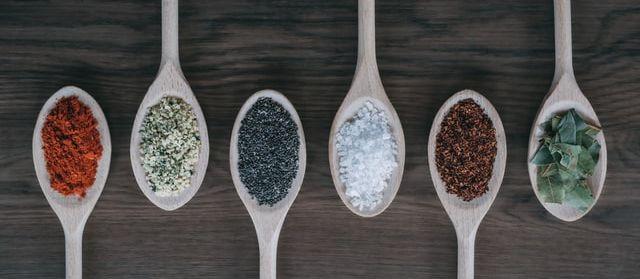BIF interivews Mezuo Nwuneli, AACE Foods, Nigeria - now with full transcript
We are re-publishing our 'Time with...' interview with Mezuo Nwuneli, Director of AACE Foods Nigeria, now with a full transcript of the interview, for anyone who can't stream the video or would prefer to read it!

From start-up to scale-up: AACE Foods was one of the first BIF-supported companies in Nigeria. It's a start-up company that is now seriously scaling up. On the site of its newly-purchased plot, where ginger and chilli processing will start in a month's time, Mezuo Nwuneli explains to BIF how the business is progressing and why developing a local supply chain has been hard work but with commercial rewards.
You are Managing Director of AACE Foods – when you started with the Business Innovation Facility early last year, you were a start-up business, wanting to source locally and try out a range of products for the Nigeria market. Can you tell us what has happened since then?
Yes, last time we met and spoke early last year, was our second year in operation. We started it and registered in September 2009, set up operations in May 2010 and early last year we had a temporary location in Lagos state; and since then we have had great growth over the year. Last year we had, in 2011, 25 tonnes of different products that we’ve sold. In 6 months this year we have sold 51 tonnes of different spice products – and our first year we had 6 tonnes, so its been a great growth the past year.
What makes you distinctive from other businesses? You have an approach to inclusive local sourcing – how is that different to what other do?
Quite a few companies in the market actually import their spices and other products from Asia, from India, and what we do is we locally source – we are very interested in building local content. So we source our products from Nigerian farmers. We have a partnership with farmers in Kaduna state, where we source all our ginger from, and chilli peppers as well that come from northern Nigeria, from Kaduna, and Kanno(!?).
What are the main products that you’re selling?
Spices – right now most of our processed spices, chilli peppers, ginger, and garlic.
People often say this is a lovely idea, sourcing from the farmer, but does it work for a business? Is it commercially viable?
It definitely works. It’s quite a bit of work to put in place, it’s not easy to do, but it definitely works. We have a very close relationship with the partnerships, especially with our ginger cooperative. We’re quite excited to source local products and it also makes business sense, because once you have the partnership in place you can get the quality that you need at a very good price. And for some of our commercial customers, when they import spices, because of the time to actually bring the products in, they have 6 weeks of inventory tied up in the ships and ordering in, another 4-6 weeks tied up in the warehouses here in Nigeria, and they also have exchange rate risk. But by sourcing from us they can hold lower amounts of inventory which makes business sense for them and also at the same time we support the farmers.
You’ve put a lot of investment into the company: are you near break-even?
We have, and thankfully we’re break-even this year - and we want to go past break-even point and also generate profits as well this year.
Finally, tell us a little bit about your expansion plans for the future?
We did a private placement earlier this year where we raised a decent amount of money, which we used to buy our new factory. So this one we own. This one is 5200 square meters of land, about a 1400 square meters of built up space. Our current flow for spices is about 6 or 7 times our entire footprint of production area in our old factory. So we’re very excited with this new factory, and that this will support our growth over the next 7 years.
When do you expect this to be open, and full of machines and grinding ginger and chilli peppers?
Well admin is supposed to be within 2 weeks and production at the end of August this year, is our target. Anything we need to do after we will do here, but by the first week of September, we will be producing here.
Many thanks to Mezuo Nwuneli for taking the time to answer our questions for this video.
